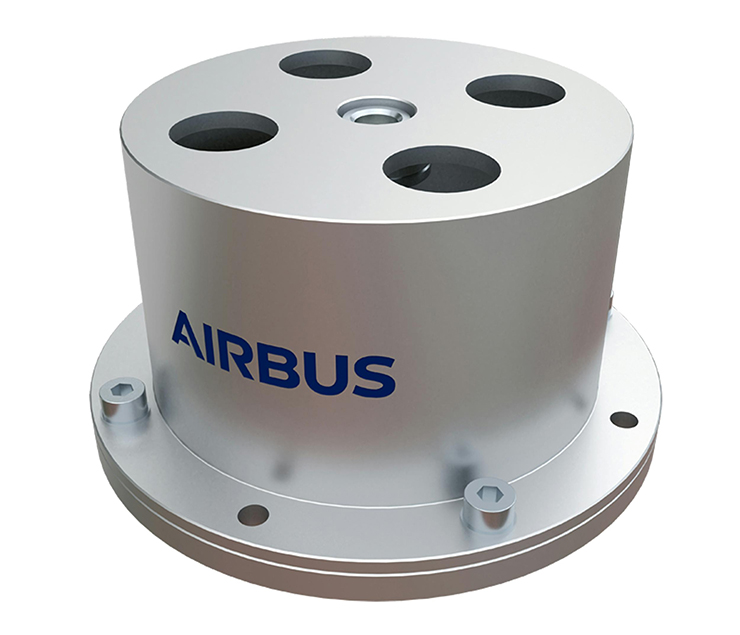
Toulouse. Airbus’ patented Detumbler device designed to prevent satellites at the end of their lives from tumbling, was launched on Saturday 11 November and will be tested in space on the mission in association with Exotrail and EnduroSat early in 2024.
Developed in 2021 by Airbus, and supported by the French Space Agency CNES under their Tech4SpaceCare initiative, the Detumbler is a magnetic damping device that would be attached to a satellite. The Detumbler includes a central rotor wheel and magnets that interact with the Earth’s magnetic field. When the satellite is flying normally the rotor acts like a compass following the magnetic field, but should the spacecraft begin to tumble the rotor movement induces eddy currents acting like a friction torque thus damping the motion.
Dead satellites, especially in low Earth orbit (LEO), often end up tumbling which is natural behaviour due to orbital flight dynamics. Future active debris removal missions will face a greater challenge if spacecraft are tumbling. The Airbus Detumbler – weighing in at around 100g – could therefore be a useful tool for future missions to prevent satellites tumbling after their end of life, making them easier to capture on debris clearing missions.
The in-orbit demonstration of the Detumbler is scheduled for early 2024 on a mission from Exotrail (SpaceVan) which will include the Exo-0 nanosatellite from EnduroSat. Dedicated detumbling tests will take place to verify the ability of the Detumbler to dampen movement.













